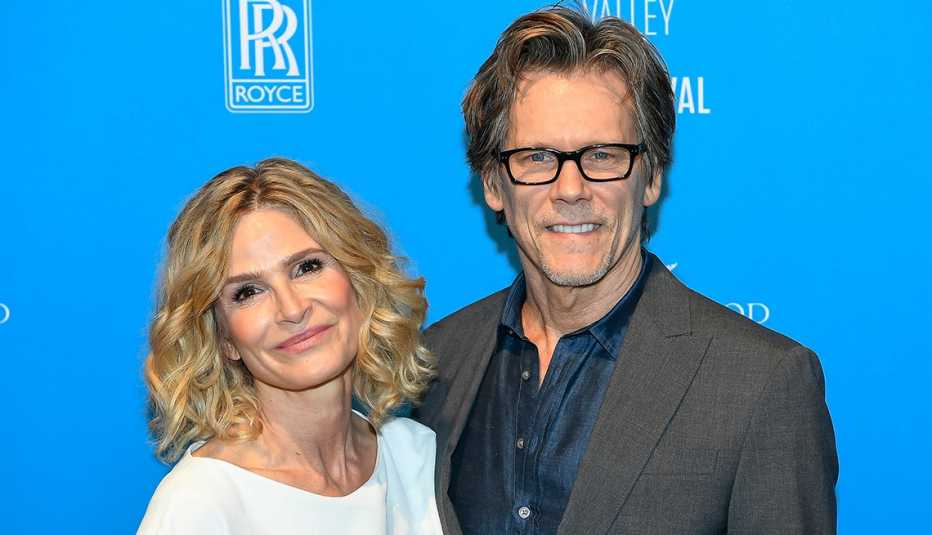AARP Hearing Center
Editor’s note: The legendary Phil Donahue died Sunday, August 18, at age 88. AARP had the honor of featuring Donahue and his wife, Marlo Thomas, on the April/May 2020 cover of AARP The Magazine. In the story, Donahue and Thomas chronicled their work together on a book about what makes a marriage last.
Almost a year ago, we picked up the phone and heard the tearful voice of one of our dearest friends.
“We’re getting a divorce,” she told us, and we nearly lost our breath. She and her husband had been married for 28 years. They were good friends and always good company. This earthquake in their lives shook us — and many of our friends, too.
“What happened?” we kept asking each other. “If it happened to them, could it happen to any of us?” Where did they go wrong, we wondered, and more to the point, where did we go right? This heartbreaking event prompted the two of us to talk about our own marriage. What did we like about us as a couple? What do we still not get right? How far have we traveled since that spring day in 1980 when we made our wedding vows, and what, exactly, has kept us going year after year?


“We often forget we're at our best when we're holding the hand — and having the back — of someone we care about.” —Marlo Thomas
We started to wonder if there really is a secret sauce to a successful marriage. And that’s when we decided to break an ironclad rule of our marriage — for the first time, ever — and work on a project together. We’d write a book — one that pulled together the personal stories of many devoted couples — and uncover some of the mystery of marriage in a way that could be a source of information and inspiration for other couples, from newlyweds to long-married couples like us.
For nine months, we crisscrossed the country, sitting down on double dates with couples we admired who had been married 15 years or more. (We waived that requirement for the gay couples we interviewed, whose marriages were not legal nationwide until 2015.) As different as these couples’ stories are, they share a common plotline: that of two people joining hands and stepping up to the most challenging, invigorating, inspiring, infuriating, thrilling, terrifying, delightful and heavenly job on earth — making a marriage last.


Joanna and Chip Gaines
Married in 2003
Their challenge: Two Different Money Styles
It’s their differences that make them such a joy to watch. He’s restless; she’s centered. He’s goofy; she’s pragmatic. And together they are guileless and completely authentic, qualities that endeared them to a vast TV audience on their home-makeover show Fixer Upper. The two met at her father’s tire shop in Waco, Texas, and went into the house-flipping business together at the start of their marriage, raising five kids along the way.
Joanna: Working together isn’t for everyone. But we have been together for every high and every low. We’ve never known it any other way.
Chip: About six years ago, we challenged each other to go on a date and not talk about business at all. And it was the most awkward first date ever. We were like, “So, how’s the weather?”
Marlo: Being in business means talking about money, and that causes tension for most couples.
Joanna: Sometimes he wanted to do things with our money that I didn’t think we should do right then.
Chip: She’d be thinking about college funds, and I’d say, “Babe, we’ve got a lot of problems right now, but college funds aren’t one of them. We’re going to just scrape by forever if I don’t have access to all of the money.”
Joanna: He knew how to grow the money. If it had been up to me, the money would have been hidden underneath my mattress.
The fix? In time, Joanna learned to trust her husband’s instincts, and he, in turn, ceded the bookkeeping details — not his strong suit — to her.
“Pursue the person you love like a hornet.” —Chip


Kyra Sedgwick and Kevin Bacon
Married in 1988
Their challenge: Caught Up in a Shocking Swindle
It took persuading to get actors Kevin Bacon and Kyra Sedgwick to talk about the success of their 31-year, two-kid marriage. As Kevin told us on the phone, “My first piece of advice is not to take advice from celebrities.”
But eventually, the couple invited us to their home in Manhattan.
“I never want to come off like a celebrity who knows more than anybody else in the world,” said Kyra. “Who am I to say that what works for me works for somebody else?”
Kevin agreed. “Whenever people ask us how we’ve stayed married, I’ve started saying, ‘Keep the fights clean and the sex dirty.’ I felt like that would just end the conversation.”
“And it does,” Kyra added.
She starred for seven seasons in the TNT police drama The Closer. It was in 2008, in the midst of that show’s run, that the news hit about the arrest of Bernie Madoff, who operated the biggest Ponzi scheme in history. Kyra and Kevin had invested their life’s savings in his firm — and lost it all.
Kyra: We had both been working professionally — Kev since he was 17 and me since 15 — and it was all the money we had. It was all over the news, about 5 o’clock on a winter day, just before Christmas. It was a hard day.










































































More From AARP
You Can Have a Successful Later-in-Life Marriage. Here’s How
From kindness to having a sense of humor, one woman shares her rules for a happy new marriage as an older adult
How to Be Open About Money in Your Marriage
About a quarter of married Americans say one person manages all financial decisions and transactions in household
First Comes Love, Then Comes Marriage
Young people may pooh-pooh marriage, but its benefits can’t be denied
Recommended for You